Nurturing African Athletic Talent for Africa
The Continent Needs to Earn its Best Athletes
By Osivue Itseumah
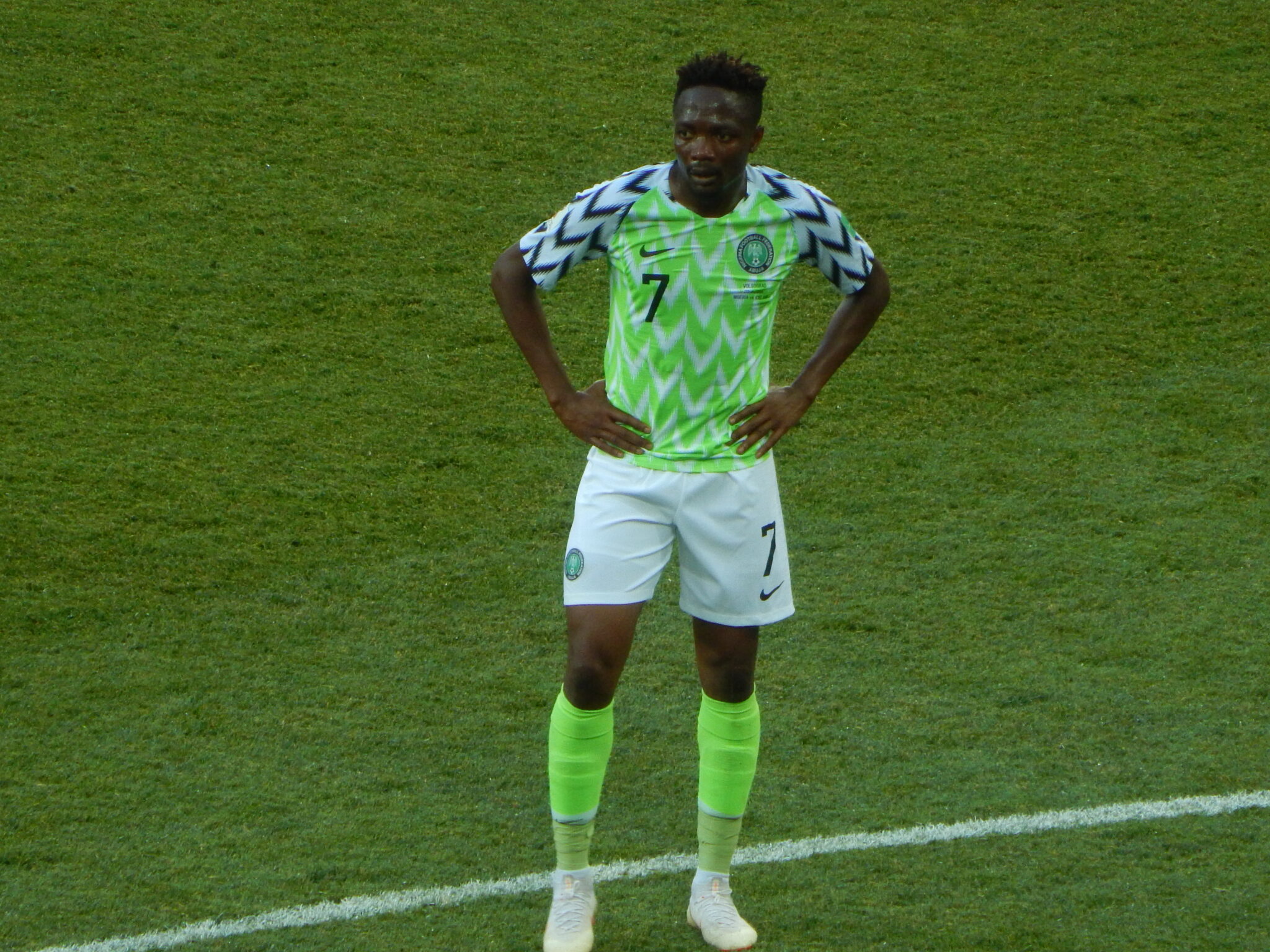
2018 FIFA World Cup Group D match, Nigeria vs. Iceland. (Source: Wikimedia Commons)
WINNING OFF THE PITCH
The Nigeria Super Eagles’ World Cup kit became a pop culture phenomenon when Nike released the design in 2018. There were reportedly three million pre-orders for the football shirts, and physical stores sold out of their inventories in a week with customers lining up for blocks to make their purchases. The kits were modeled after the shirts worn by the Super Eagles during the 1994 World Cup–the year when the team was ranked 5th in the world, the highest position ever held by an African football team to date.
The Super Eagles ended up being eliminated from the 2018 tournament after a loss to Argentina and subsequently failed to qualify for the World Cup in 2022. But despite the losses, the bucket hats and tracksuits released in 2018 morphed into casualwear coveted by both staunch supporters and consumers who just admired the design.
The release of items beyond traditional football shirts coupled with culturally relevant collaborations showcased a confluence of football and fashion that has become increasingly prominent in recent years. The Nike campaign ahead of the 2018 games featured Nigerian entertainers such as Wizkid and Not3s, and also showed an intention to leverage a connection to the country’s success in the creative industry.
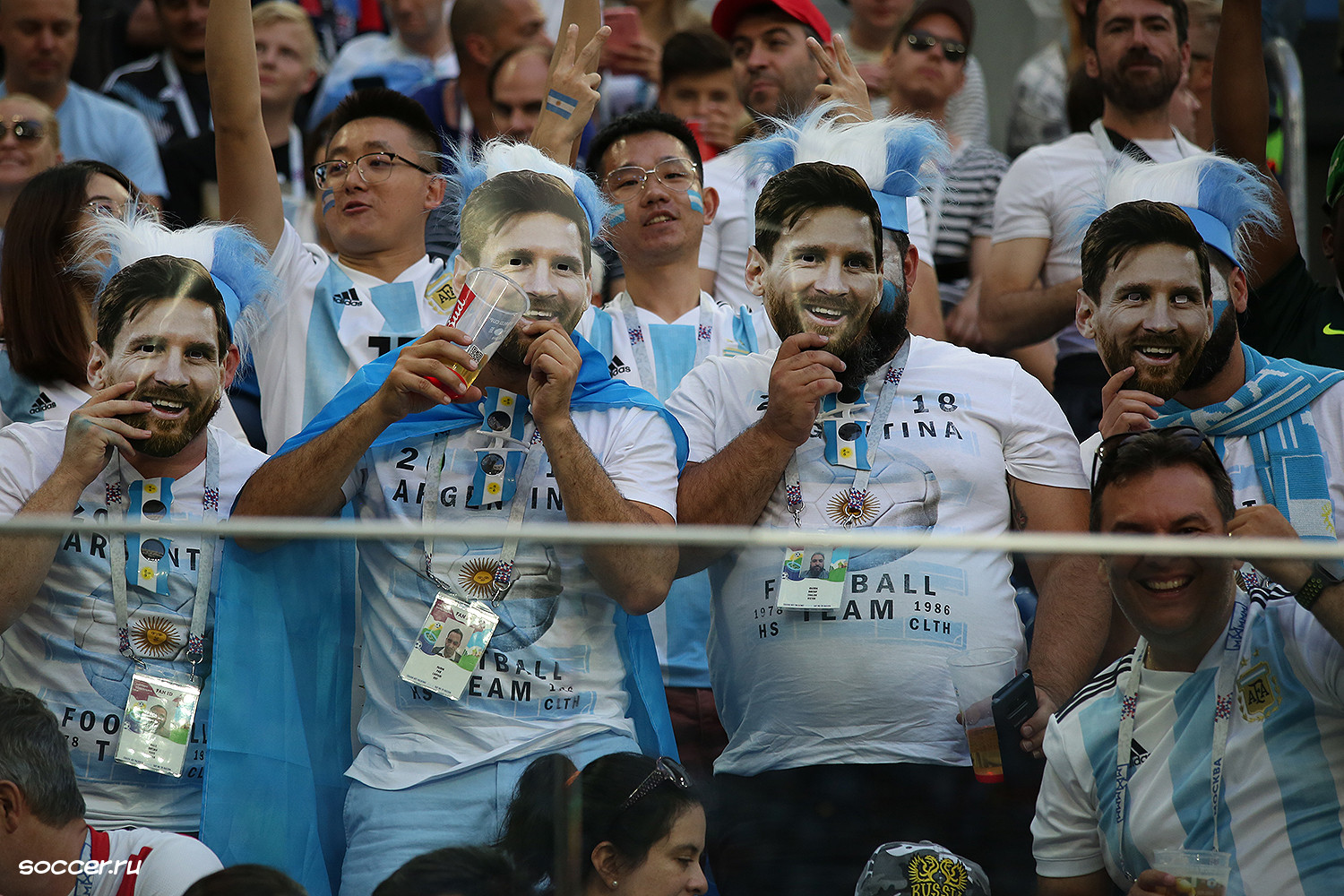
Argentina fans during the game that resulted in the Super Eagles being eliminated from the 2018 World Cup tournament. (Source: Wikimedia Commons)
Jersey sale profits are only a fraction of the benefits that can be accrued from success in international competitions, winning a World Cup also impacts a team’s global perception. Should the Super Eagles have won the 2018 tournament, or at least advanced to the final game, it could have boosted Nigeria’s international profile and increased its visibility as a competitive and successful nation in sports.
UNDERPERFORMANCE IN GLOBAL COMPETITIONS
African countries have historically underperformed in global football sport competitions. Prior to the most recent iteration of the tournament in Qatar last year, no African nation had ever reached the semi-finals of a FIFA World Cup tournament, and no African nation has won the Olympics football tournament since Nigeria in 1996 and Cameroon in 2000. Although Africa can boast of a multitude of individually talented athletes and coaches, the inadequate administration of national teams and programs by governments across Africa has led to poor outcomes in competitions and is well documented. Zimbabwe was disqualified from the 2018 World Cup qualifying tournament after its football association failed to pay a former national coach. In November 2021, the president of Football Kenya Federation was arrested for embezzlement. Two weeks before the opening match of the 2023 Women’s FIFA World Cup, the South Africa national team boycotted a warm up because of a lack of bonuses and no written agreements about payments from the country’s football association. A recent Fédération Internationale des Associations de Footballeurs Professionnels (FIFPO) report shows that 38% of women footballers in the Confederation of African Football say payments to players need extreme improvement.
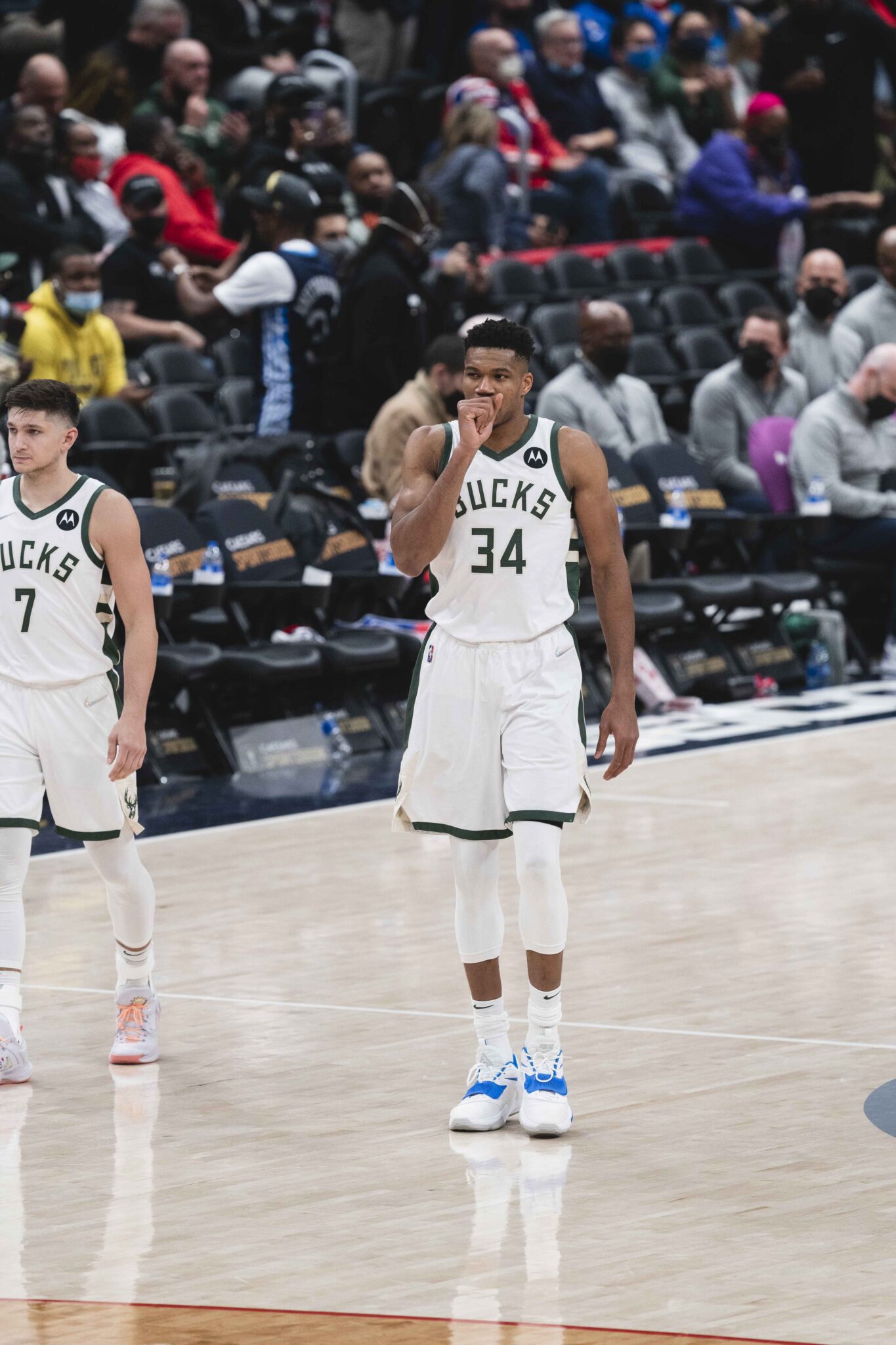
Giannis Antetokounmpo was born in Greece to Nigerian parents after they immigrated to the country in search of a better life, a direct result of Nigeria’s poor governance and declining economy. In order to receive a Greek passport, he had to change the spelling of his last name from “Adetokunbo” to one that was in accordance with the Greek alphabet. When he arrived in the US to the play for the NBA, he was required to keep the same Greek spelling on his passport for legal reasons. (Source: Wikimedia Commons)
Winning at the highest level in professional sports requires that national governments assist athletes in maximizing their talent. Poor government administration has and continues to be a hindrance to success. Therefore, it should be no surprise that there has also been a history of African players migrating to other countries in Europe, North America and Asia and representing them internationally. A 2005 article reported that at that time, up to 40 Kenyan long-distance runners had become Qatar and Bahrain nationals in search of better training facilities and financial opportunities. More recently in the 2016 Rio Olympics, about 20 Kenyan-born athletes represented their adopted nations mostly for the 1,500m, 3,000m steeplechase, 5,000m and 10,000m races. Femi Ogunode, a Nigerian-born sprinter considered Asia’s fastest man competed for Qatar. Similarly, Ezinne Okparaebo, Kemi Adekoya and Abubakar Abbas, all of whom are Nigerian-born athletes, represented Norway and Bahrain in track and field events during the tournament.
While Africa is losing talent to other countries due to poor sports administration, there is also an opportunity to recruit. There has been a trend of eligible athletes electing to represent African countries. Geoffrey Kondogbia and Saido Berahino elected to play football for the Central African Republic and Burundi respectively after previously representing France (Kondogbia) and England (Berahino) internationally. In addition, Pierre Aubameyang, Kevin Prince Boateng and Wilfried Zaha now represent the Gabon, Ghana and Ivory Coast football teams respectively.
However, the connection to Africa is not exclusive to athletes. Despite living in countries that they have called home for decades, an increasing number of Black people are seeking a sense of belonging and identity that is tied to their African heritage. This growing trend can be attributed, in part, to the current geopolitical and social climate in many Western countries. Racial inequality, police brutality and systemic discrimination against Black and immigrant communities have led to a growing sense of disillusionment. The sense of pride and belonging that they seek can often be found in Africa’s rich cultural heritage and strong sense of community.
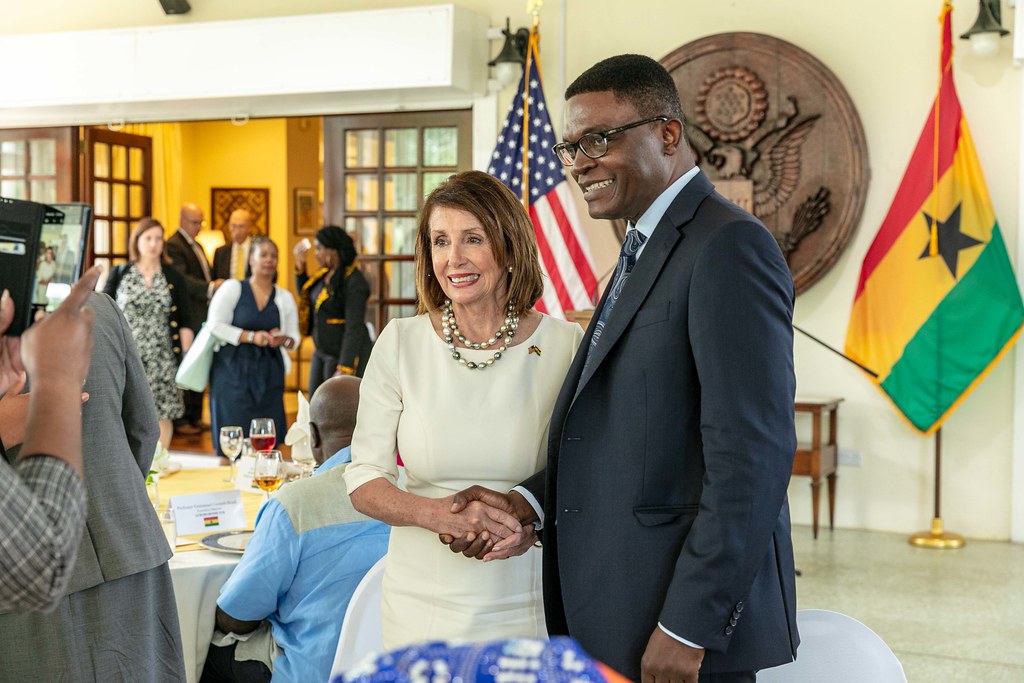
Then Speaker of the U.S. House of Representatives Nancy Pelosi led a U.S. congressional delegation to Ghana from July 28 -31, 2019 to commemorate the “Year of Return” and mark 400 years since the first enslaved Africans arrived in Jamestown, Virginia. (Source: Flickr)
Many people of generational African descent living outside of Africa are driven by a desire to better understand their ethnicities and nationalities, as well as to uncover their family histories. The legacies of slavery and colonization have resulted in the loss or erasure of much of Africa’s cultural and historical heritage outside Africa, making it difficult to trace roots. As a result, many individuals may embark on genealogical research or DNA testing to gain insight into their ancestry. This search may also involve a desire to connect with living relatives to build a sense of familial identity and belonging. Ultimately, the desire to reconnect with one’s cultural and familial roots is a powerful motivator for many people of African descent, as they seek to reclaim and celebrate their heritage, for example Ghana has reported an increase to their number of annual visitors and applications for citizenship since 2019, the Year of the Return.
The trend of Black athletes seeking to represent their ancestral countries should be embraced and supported but it won’t be cheap—countries will need to establish a lifestyle for these players that is up to par with what they would be experiencing if they were in a country with a well-developed sports infrastructure. But sport competitions provide the space to emphasize healthy nationalism and promote identity. National governments can harness the desire for cultural connection to Africa by using sports as a nation building tool that helps define what it means to represent one’s motherland. Ultimately, recruiting these players will significantly improve the ability of African countries to compete in and win global tournaments.
Policy Recommendations
Sports as a Nation Branding Tool: Implementing a branding strategy that combines economic, social and political initiatives with sports as the centerpiece, provides an opportunity for African countries to gain soft power. Implementing this requires national governments to invest in major facets of African culture such as music, television and film that have served as major exports and representatives of culture in recent years. For example, Burna Boy, Tems and Rema performed at the 2023 NBA All-Star game halftime in Utah and more streaming giants such as Amazon Prime and Netflix have increasingly invested in Nigerian films and television shows. Adopting this strategy can increase visibility and interest in African culture, help reshape negative perceptions of Africa, and attract tourists and investors.
These facets of cultural export can all be tied together as a catalyst for the development of a positive national brand through the organization of national and continental sporting events. For example, creating a continental version of the ECOWAS Games can be a tool for African countries to showcase talent, provide earning opportunities for athletes, encourage and strengthen regional allegiance and generate revenue through global broadcasting and advertising. Due to underfunding, ECOWAS has only been able to host two editions of the games, with the last one held in 2012. Therefore, strategic investments by all African countries to create a continent-wide recurring tournament will provide invaluable returns.
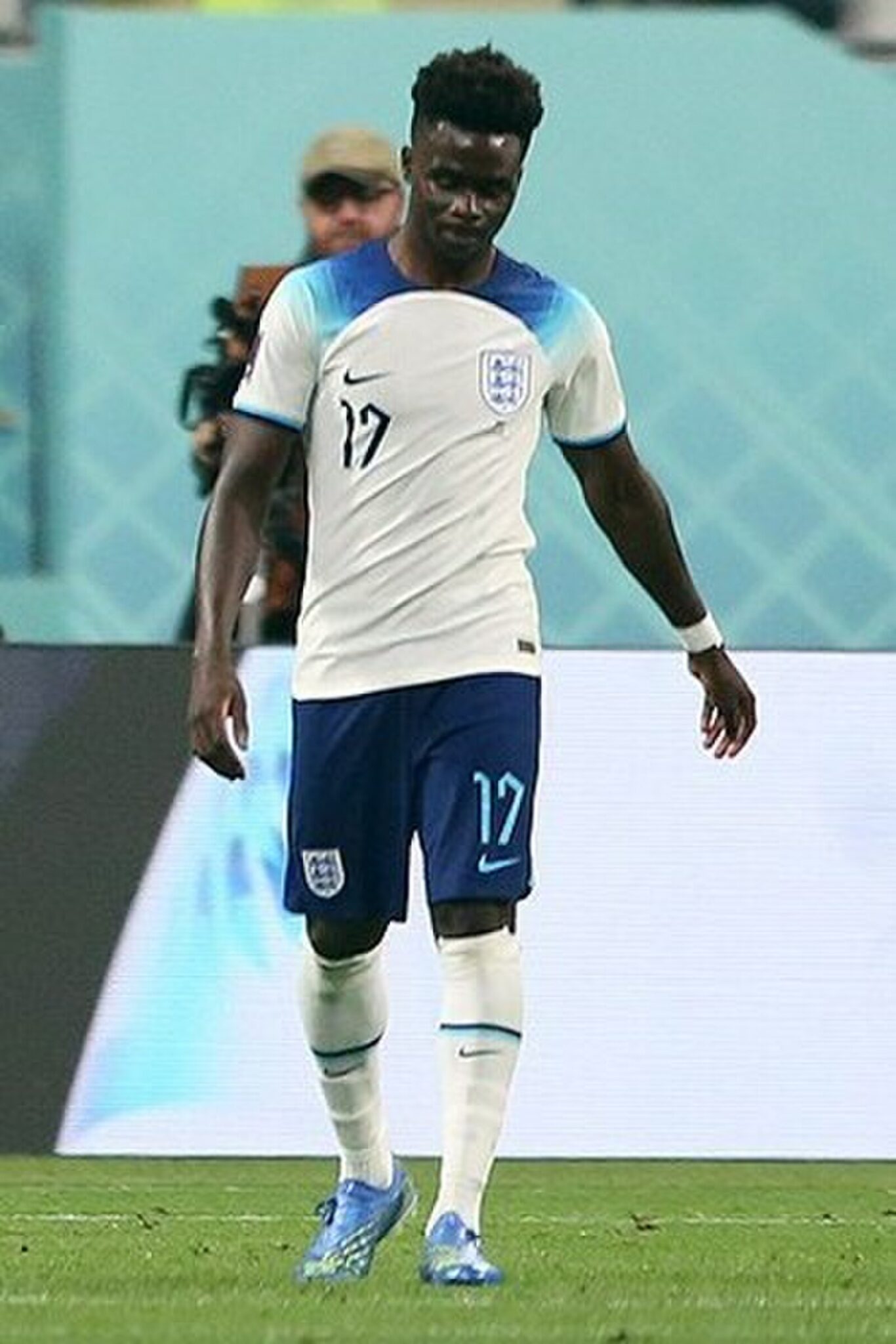
When Bukayo Saka announced his decision to represent England on October 1, 2020 there were mixed reactions amongst Nigerians despite it being clear that a player should pick a team that can offer them a more stable sports infrastructure and environment. (Source: Wikimedia Commons)
Promoting National Unity: By participating in and supporting their national teams, citizens develop a sense of camaraderie and shared identity that transcends ethnic, linguistic and other multicultural divides. As such, sports provide a space for individuals to come together as a cohesive community, rallying behind a common cause or goal. This can be particularly important in countries where ethnic tensions threaten national unity. African countries can use sports as a lever to generate a sense of purpose, belonging and empowerment among citizens. The display of national pride and identity can also be parlayed across the continent to support the projection of a unified continental front.
Effective Administration of Sports Programs: For African countries to be successful in global competitions, they need to emphasize effective administration of sport programs. This includes providing athletes with competitive wages, quality travel and housing during international competitions. This also includes providing the best tools for their growth and development, and preparation for tournaments. State-of-the-art sports infrastructure, coaching staff and health care are prerequisites to ensure that athletes maximize their potential but also attain longevity as performers.
Create an education-to-professional sports pathway: It is essential for African education and sports policymakers to collaborate on pathways for students. In the United States, schools with athletic programs provide significant economic boosts to themselves and the local communities surrounding them. Division 1 athletics reportedly generated $15.8 billion in revenues in 2019 mostly through government funding, media rights, ticket sales, royalties, licensing and donor contributions. This revenue was also reinvested into the local communities to provide scholarships and financial aid as well as multi-purpose sport facilities across cities. Sports programs in academic institutions also provide opportunities for employment such as jobs in coaching, physical therapy and broadcast journalism. Known as the “Flutie Effect,” schools with successful sports programs also stand to benefit from increased enrollment meaning increased revenue through tuition.
Create a domestic sports economy: African countries currently operate domestic sports leagues at various levels of maturation. However, the challenge for development in local leagues lies in organizational structure and absence of funding. For example, most teams in the Nigerian Premier League are owned and funded by the state government through tax-payer funding. Therefore, clubs are not driven to make profit or managed as business ventures. It is important to acknowledge that owning and operating successful sports franchises requires significant financial investments that may be challenging for national governments to provide. Therefore, it is incumbent for government administrations to use creative policies to leverage private sector funding for these purposes. For example, federal governments can provide tax incentives to private sports companies to encourage donations to or investments in national or continental sports ventures. Governments can also establish special economic zones to provide sports good manufacturers with incentives such as waivers on import and export licenses, exemption from double taxation and free transferability of capital returns of investments. Lastly, local, regional and national governments can also provide matching funds for private donations or investments in sports as a motivator for private investors.
HOW TO WIN
To achieve success in international competitions, there needs to be effective administration of sports programs and the creation of an education-to-professional sports pathway, in addition to supporting local leagues to create a domestic economy for talent.
Winning goes beyond just trophies, it can have a significant impact on a country’s global perception and political influence. African governments must recognize the potential soft power that sport offers and create comprehensive strategies for development, growth and global influence.
Osivue Itseumah is an experienced policy advisor and project manager with a demonstrated history of working in the government administration industry. He holds a Master of Public Administration focused in Public Policy Analysis from Queen’s University and an undergraduate degree in Political Science and Communications Studies from York University.
Editor: Temi Ibirogba
This article is part of The Africa Center’s Policy Positions series, the recurring publications will offer thoughtful engagement with contemporary policy and governance issues related to the African continent. Policy Positions are submitted by members of The Africa Center’s community of thought leaders from across Africa and the African Diaspora. Follow @theafricacenter on Twitter, Instagram and LinkedIn to stay informed of new posts, and reach out to the editor to submit an idea for consideration.
